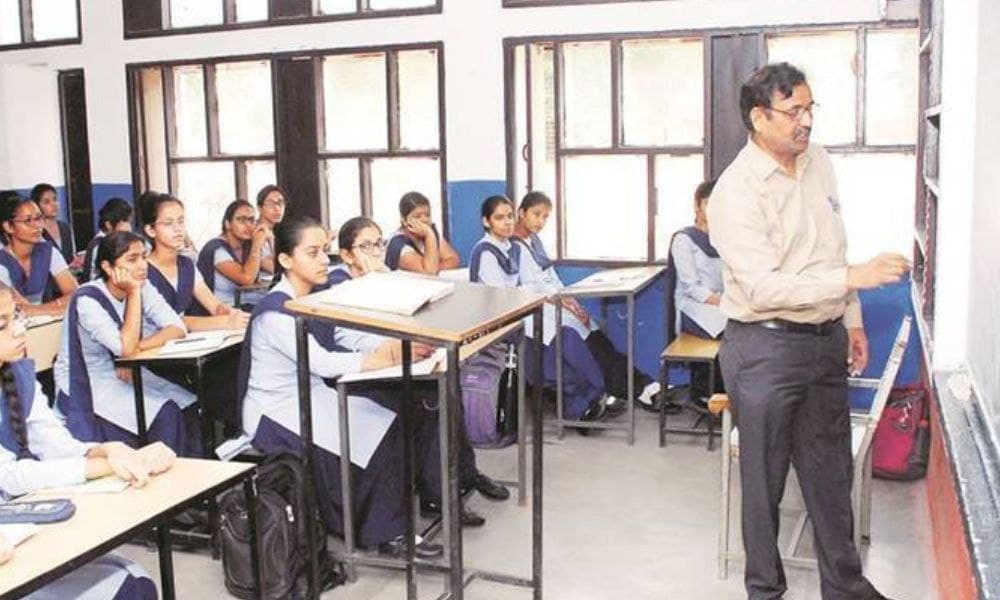
Representative Image
An Attempt At Saffronisation? Bengal Teachers Skeptical Of UGC's New Version Of History
Writer: Madhusree Goswami
A mountain girl trying to make it big in the city. She loves to travel and explore and hence keen on doing on-ground stories. Giving the crux of the matter through her editing skills is her way to pay back the journalism its due credit.
West Bengal, 9 July 2021 10:41 AM GMT
Editor : Ankita Singh |
A literature lover who likes delving deeper into a wide range of societal issues and expresses her opinions about the same. Keeps looking for best-read recommendations while enjoying her coffee and tea.
Creatives : Madhusree Goswami
A mountain girl trying to make it big in the city. She loves to travel and explore and hence keen on doing on-ground stories. Giving the crux of the matter through her editing skills is her way to pay back the journalism its due credit.
The ancient secular literature such as Kautilya's Arthashashtra and Charaka Samhita has been dropped from the syllabus.
The University Grants Commission's new curriculum framework for history in undergraduate courses has come under flak from teachers in West Bengal for being excessively Hindu and Hindi-centric.
The proposed syllabus has no chapters on Emperor Akbar and largely depicts Mughals as people resisted by the Rajputs and the Marathas, reported The Hindu. Among other things, it uses the term "Indus Saraswati Civilisation", in place of Indus Valley Civilisation; emphasises the Vedas, and seeks to educate students on, among other things such as "Indian perception of Dharma and Darshan" and "Science and Technology in Ancient India."
'Concept Of Islam Being Alien Is Being Promoted'
"The emphasis is on what is known as the Indic culture, which is their way of saying India is home to Hinduism, Buddhism and Jainism and therefore implying — though not saying so in as many words — that Islam is alien," Professor Kingshuk Chatterjee, who teaches history at the University of Calcutta.
The ancient secular literature such as Kautilya's Arthashashtra and Charaka Samhita has been dropped from the syllabus. Works by prominent historians such as R S Sharma's book on ancient India and Irfan Habib's book on medieval India have also been dropped.
Curriculum Framework On Website
In February this year, the commission put up the draft Learning Outcome-based Curriculum Framework on BA (history) on its website and sought feedback by February 28.
However, the biggest irritant for teachers is the inclusion of a large number of Hindi books in the lists of 'suggested readings' for each paper. References to Dalit politics during the period between 1857 to 1950 is also absent from the new syllabus. Muslim history between the 13th and 18th centuries has been sidelined in the new syllabus. The current DU syllabus has three papers devoted to this period, while the new syllabus has just one paper.
The draft syllabus describes the 1857 uprising against the British as the "First War of Independence", a term coined by Sangh ideologue Vinayak Damodar Savarkar.
However, it makes no mention of the uprisings that took place before this year, such as the Sanyasi Rebellion in Bengal, Paika Rebellion in Odisha and the Polygar Rebellion in Tamil Nadu.
Also Read: Work In Progress: Gadkari Aims To Reduce Road Accidents, Fatalities By 2030
 All section
All section














